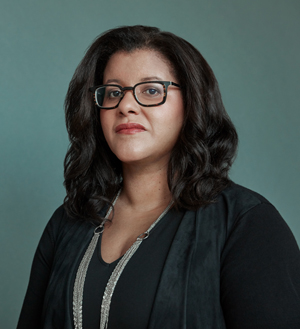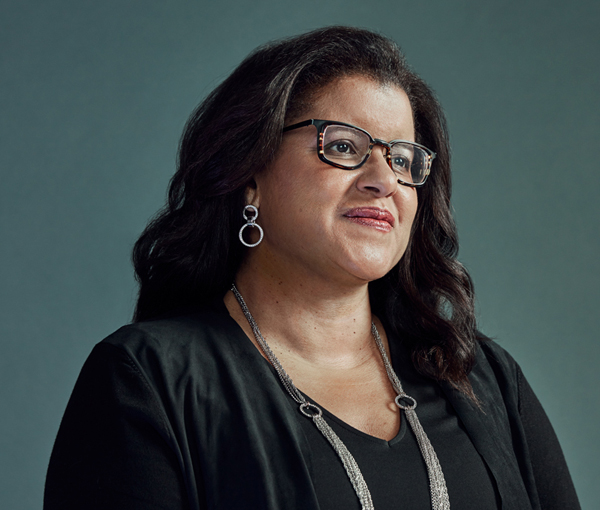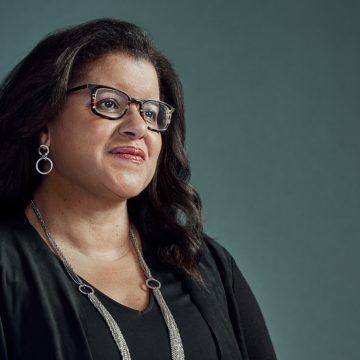Ruth Goba isn’t sure how to feel. On one hand, she’s excited. And with good cause. Over the summer, she became the executive director of the brand-new Black Legal Action Centre, which will open its doors in the new year with a mandate to fight anti-black racism in Ontario. “This is an incredible opportunity,” says Goba. “I have a platform to reduce discrimination throughout the province.”
On the other hand, the weight of that responsibility fills her with fear. “The expectations will be great,” she says. “But I don’t yet know how I’ll meet them with our current resources. I’m scared of disappointing people.”
The clinic is filling a void that was cracked open, one year ago, when Legal Aid Ontario defunded the African-Canadian Legal Clinic (ACLC) after it faced allegations of financial mismanagement. At the time, its executive director, Margaret Parsons, told the media that the ACLC was subject to more scrutiny than other publicly funded clinics. “I was just saddened by what happened,” says Goba. “Our community faces significant issues and we need as much support as we can get.”

“When legal issues arise, people often don’t know where to get representation,” says Ruth Goba.
Goba sees the Black Legal Action Centre, which is also funded through Legal Aid Ontario, as a fresh start — and, on top of that, an opportunity to build upon her decades-long mission to fight injustice. That calling dates back to 1996. At the time, she was in the final year of her undergrad at the University of Toronto. She travelled to Sierra Leone — where she lived in her early childhood — to attend her father’s funeral. Goba had remembered the country as a place of promise, peace and stability. But when she returned, she found a country ravaged by civil war. “The people no longer had control over their lives,” she recalls. “There were systemic issues that the people couldn’t fight on their own.”
The experience taught her a core lesson: those on the margins of society need an advocate with the power and authority to do battle on their behalf. One year later, she started law school at Osgoode Hall.
Over nearly two decades, Goba built a legal career in the public sector. Her wide-ranging career included stints as the executive director of the Centre for Equality Rights and Accommodation (a community legal clinic that combats discrimination in the housing market) and as a commissioner at the Ontario Human Rights Commission (a role that she held for more than a decade).
The moment that Goba started at the Black Legal Action Centre, this past June, the workload was intense. For starters, she had to determine how to best use the clinic’s annual budget of $850,000. Her plan is to hire two full-time lawyers, two community legal workers, one office manager and one administrative assistant. And she has also secured office space at Spadina and Bloor — a location that she chose, in part, because of its close proximity to the subway line.
Black Ontarians continue to struggle against a barrage of injustices: racial profiling at the hands of the police, poverty and educational inequality (black children, for instance, are disproportionately disciplined and expelled from Toronto schools).
It will be a particularly tall order to address all of these problems. “I’m not sure two lawyers will be enough,” says Goba. “We’ll have to figure out how we meet our mandate under those circumstances.”
Before the clinic can make any difference at all, though, it needs a large public profile. So Goba is planning an outreach campaign within the black community.
“When legal issues arise, people often don’t know where to get representation,” she explains. “We want to educate the community so that they know where to go, what to do and what their rights are.”
Goba also intends to use the media to advance the clinic’s cause in the public sphere: “I want to be a voice for the black community across the province.”

Timeline of a human-rights lawyer
1996: Ruth Goba completes a bachelor of arts degree at the University of Toronto.
1997: Goba begins law school at Osgoode Hall.
2000: Upon graduation, Goba does not land an articling position. “I was devastated,” she says. “I decided to look for work in international law.” Goba finds work at an NGO in New Delhi, where she begins to research the status of women’s rights to housing.
2001: Goba returns home to Toronto to article at the ARCH Disability Law Centre.
2003: She starts at the Centre for Equality Rights and Accommodation (CERA) as a staff lawyer.
2004: Goba enters private practice as a human-rights lawyer. The next year, Goba and her husband, criminal lawyer Jonathan Shime, become pregnant with their first child. She returns to CERA, which offers more stability than life as a solo lawyer.
2006: Goba works part-time as a commissioner at the Ontario Human Rights Commission (OHRC).
2007: Goba is named the executive director of CERA.
2009: With three daughters now at home, Goba leaves CERA and works part-time at the OHRC.
2015: She is appointed the interim chief commissioner at the OHRC, a role she fills for nine months.
2016: Goba leaves the OHRC to serve as a part-time mediator and adjudicator at the Ontario Human Rights Tribunal.
2018: After replying to a job posting, Goba becomes the executive director of the Black Legal Action Centre in June.
This story is from our Winter 2018 Issue.
Photography by Geneviève Caron


